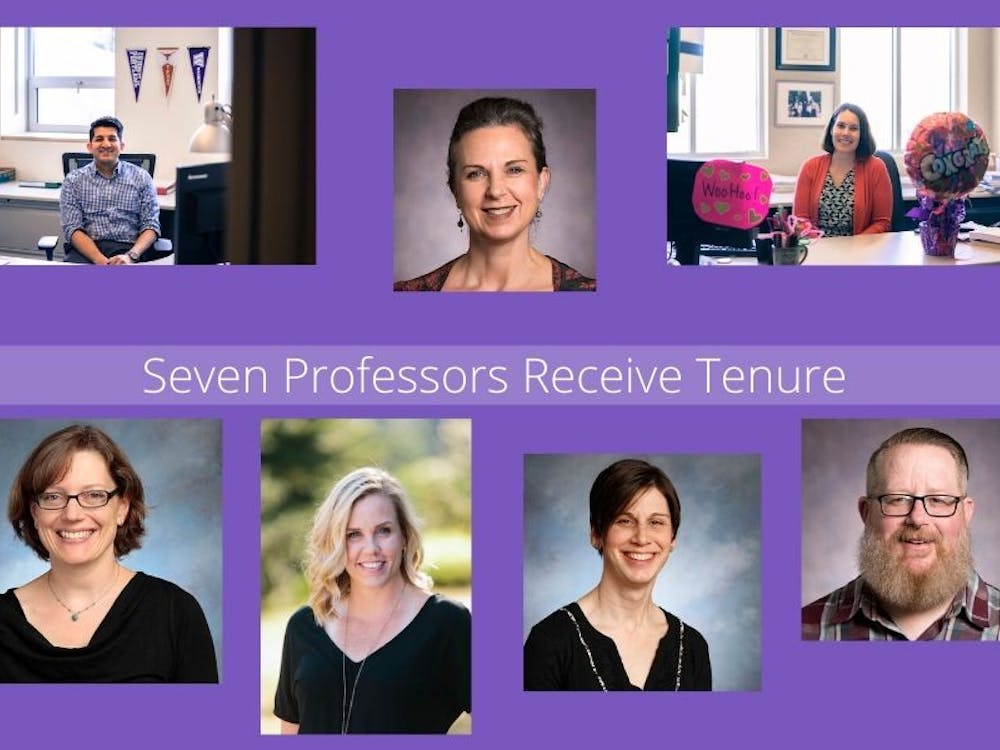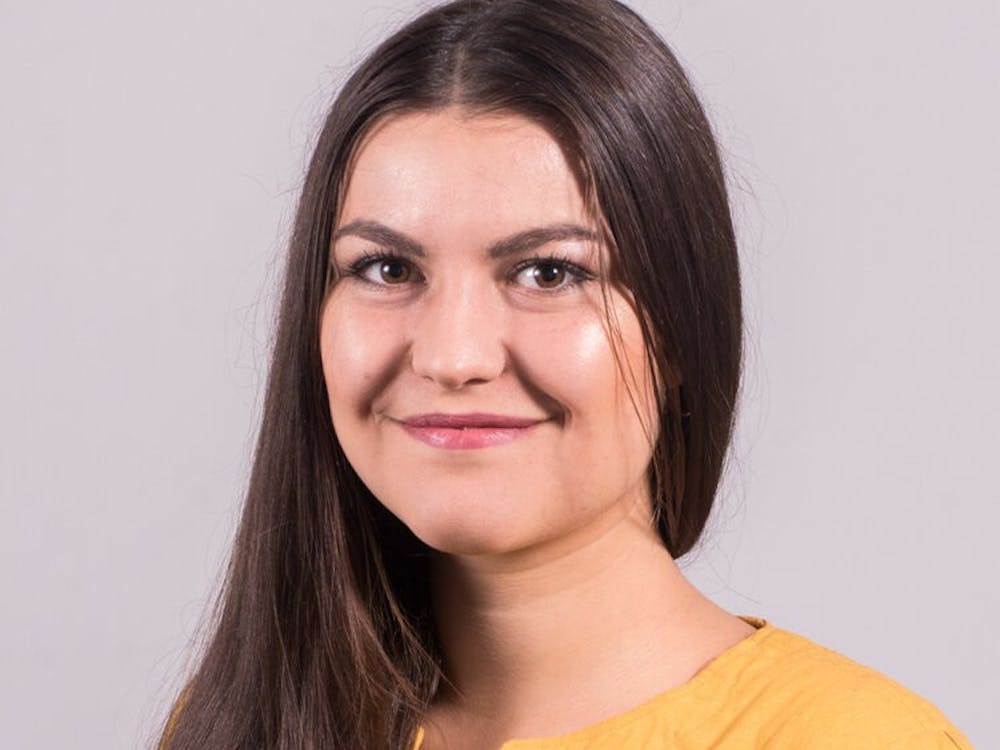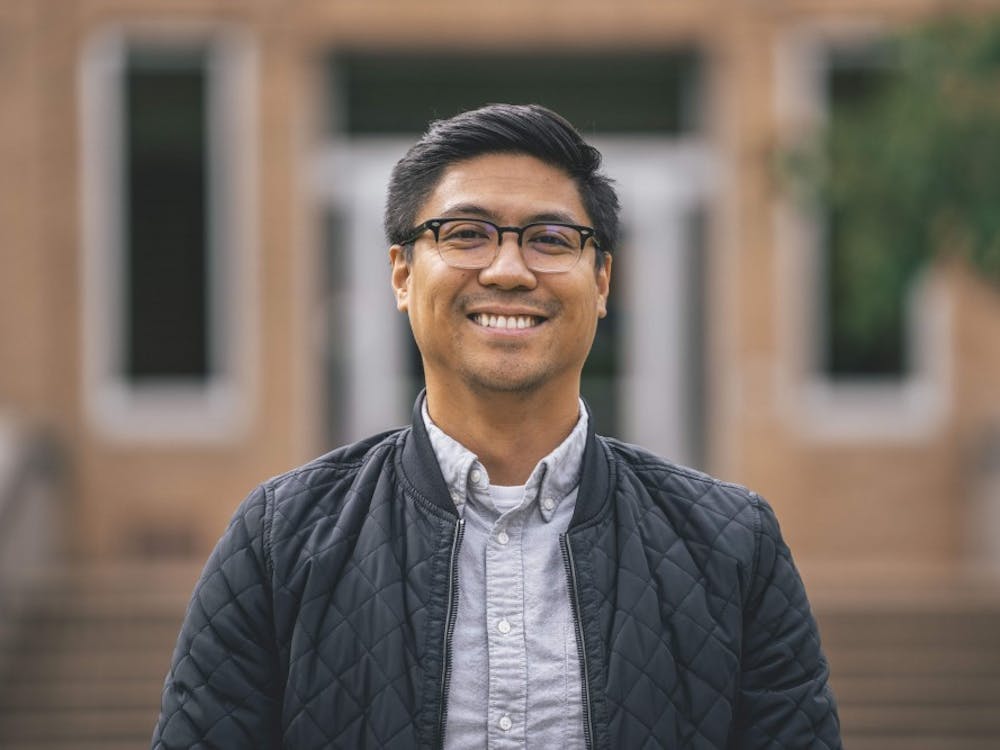As the days of the semester slip away, students are starting to scramble for internships and summer jobs. For those looking to explore an issue they are passionate about, experience something new and serve a meaningful cause, the Moreau Center has a program for those interested in making the world a better place: Interns for Justice.
According to Moreau Center Director Laurie Laird, the internship program pairs students with a nonprofit organization where they can explore a social justice issue they’re interested in.
The program is open to all who are interested, with the exception of graduating seniors. Once admitted to the program, students will choose from a large pool of nonprofits to be an intern with, and they will dedicate 300 hours to the internship over an eight-week period during the summer. Because nonprofit internships are unpaid, the Interns for Justice program gives interns a $2,000 stipend.
Last summer, the eight students who participated in Interns for Justice shared their journey by posting about their experience on the Moreau Center’s blog.
The applications for Summer 2019 are due by 11:59 p.m. on Friday, Mar. 1. Applications include an essay component and must be to be sent to moreaucenter@up.edu, along with an attached resume. Further instructions can be found on the Moreau Center website.
The Beacon spoke to three of the eight interns and asked them about the organizations they worked for, the challenges they faced and what they learned about social justice issues.
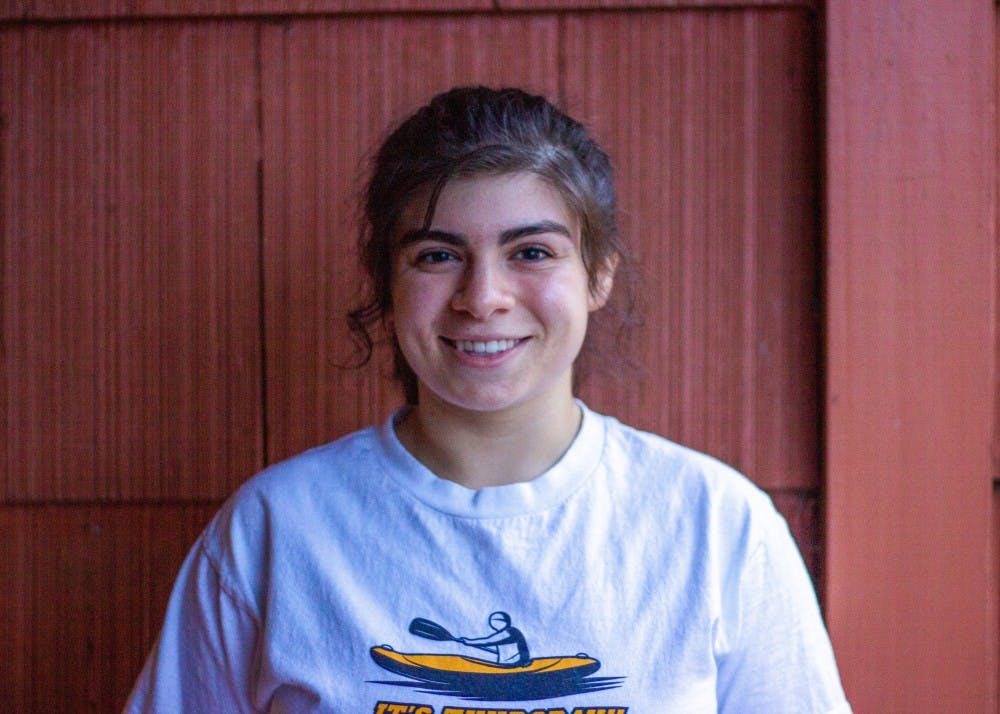
Junior mathematics major Amanda Hernandez Michalski interned at Alexandria House for the Interns for Justice Program.
Amanda - Alexandria House
Junior Amanda Hernandez Michalski, a mathematics major, spent her summer in Los Angeles, California interning at Alexandria House, a transitional women’s home that provides temporary housing for women in need. Michalski worked in the house’s daycare center and lived in a religious community with the Sisters of Saint Joseph.
Michalski said that many of the children in the daycare had experienced trauma early in their lives. One of the goals of the internship was to teach the kids how to express their feelings.
“I remember the first day hearing a three-year-old say ‘Zion I don’t like that, it makes me uncomfortable’, and for somebody to articulate that well how these actions are making them feel, it just blew my mind,” Michalski said. “It helped me grow as a person and realize how I should treat other people.”
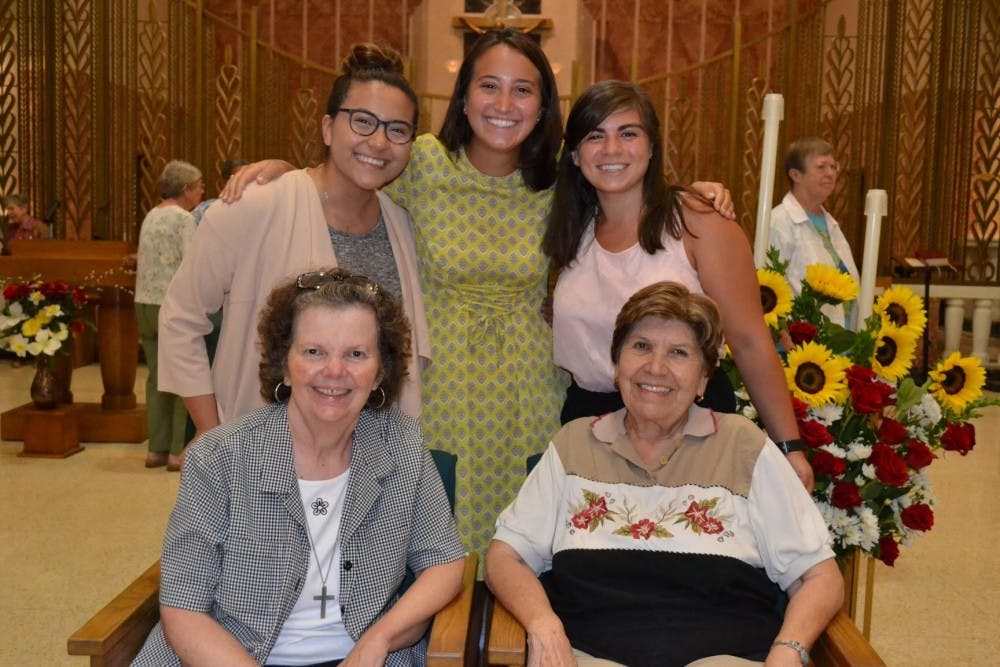
Junior Amanda Hernandez Michalski poses with some of the people she lived in community with during her internship. She lived with the Sisters of St. Joseph in the Medaille House of Discernment. Photo courtesy of Michalski.
Michalski’s work included teaching physical education, helping with meal times, teaching cooking workshops and playing with the kids in the community.
Michalski’s faith is important to her and she plans on becoming a Catholic Sister after graduating. Last year, she was a Faith and Formation Ambassador for Mehling Hall and is proud of her religious life both on and off campus.
“We would pray every morning before we went to work, and I learned the importance of meditation, prayer and reflection,” Michalski said. “It made my work a lot more meaningful because I was able to reflect on it.”
Michalski worked with four other women who were dedicated to the making the goals of Alexandria House a reality — to make the lives of those they serve better. Their care for the children and ability to work with them inspired Michalski.
“(Lendy, one of my co-workers) actually was one of the first residents of Alexandria House,” Michalski said. “She was a part of the house’s founding as well as the daycare center. She is very quiet, but she has a gentle touch that made every child feel better.”
The hardest part for Michalski was adjusting to the new environment. It took awhile for her to adjust to city life and the challenges that came with her internship. Despite these challenges, Michalski had only good things to say about her time in Los Angeles.
“I was looking to stay close to home, but my godmother talked me into going a little bit further,” Michalski said. “I think that’s truly what made it. And yes I get my degree from UP, but I feel like I truly got an education from L.A.”
The time Michalski spent at the Alexandria House helped her feel more confident in pursuing the field of ministry. Her advice to those who want to apply to Interns for Justice is to simply do it.
“I think justice is equity,” Michalski said. “Having everyone be on a level playing field considering all of their capabilities. One thing that I truly believe when I see a person is that they are a beloved child of God.”
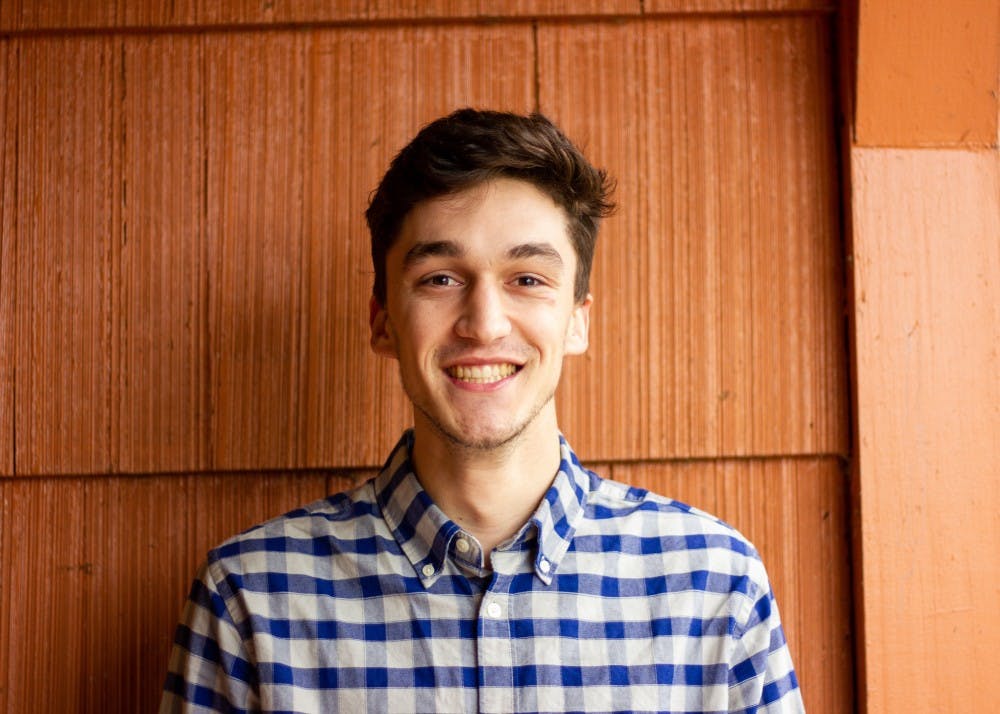
Junior organizational communication major Grant Sippel interned at Solutions for Change for the Interns for Justice program.
Grant - Solutions for Change
When junior organizational communication major Grant Sippel was looking for summer internships, he realized that a lot of companies didn’t want to hire a sophomore intern. He felt that his lack of experience and upper division classes made his standing less desirable to some companies, so he decided to apply for the Interns for Justice program.
“This program was like an open door to me to find an internship, make some money and get some really good experience working with an organization,” Sippel said.
Sippel interned at Solutions for Change in Vista, California, an organization that helps families struggling with homelessness. Sippel spent time in development work and worked on one of their aquaponics farms, which are farms that use minerals from water instead of soil to grow plants in a process called hydroponics.
Solutions for Change offers a thousand-day program called Solutions University to families who face homelessness and struggle to find economic stability. The organization gives participants a job, a place to live and includes counseling services, professional training and parenting classes.
The residents enrolled in the program start out working on the farm and can work their way up to leadership positions in the organization. On-campus housing is offered to residents for five hundred days and then they can be moved to off-campus housing in rent-free apartments owned by the nonprofit. This transformation program trains participants to keep themselves out of homelessness and support themselves.
“One of the biggest things for that set up that I had was that homelessness was not just living on the street, which is huge. It kind of shocked me,” Sippel said. “There are so many definitions of it that you don’t know, deep down.”
Sippel said that Interns for Justice and working for nonprofit companies is very different from the experience you might get with a for-profit company. Regular companies often have their interns do the same job every day, but working in a program like this has interns tackle a lot of different tasks.
For Sippel, tasks included development work — a combination of customer relationship management — account organization, volunteer coordination and event planning. He also farmed fish and vegetables on the aquaponics farms, where he got to learn more about the residents and their backgrounds.
“It increased my awareness of the issue of homelessness, especially being in Portland where it’s a lot bigger than it is down in San Diego,” Sippel said. “It allowed me to see what I can do, but also maybe what people need to be doing up here.”
The most challenging part of the program for Sippel was finding a balance between his personal and professional relationships with the people he worked with. He said he wanted to do his part to help them out, but the organization restricted his personal time with the residents, which prevented him from really getting to know their stories.
“I couldn’t sit down and go get dinner and have lunch with these people who are affected,” Sippel said. “I am an employee and they are residents of this business, this system that we have. So, it’s kind of inappropriate for me to have a lot of personal time with them, although that’s what I want to do.”
Sippel learned at his internship that there is a difference between enabling someone and supporting them. Enabling addictions and bad habits does not benefit the residents, but supporting them and helping them change will have an impact on their futures.
“The justice factor comes in as giving people a fair chance to live a comfortable life,” Sippel said. “And this opportunity that this company puts out for these people, these residents, is really giving them a chance to live a comfortable life.”
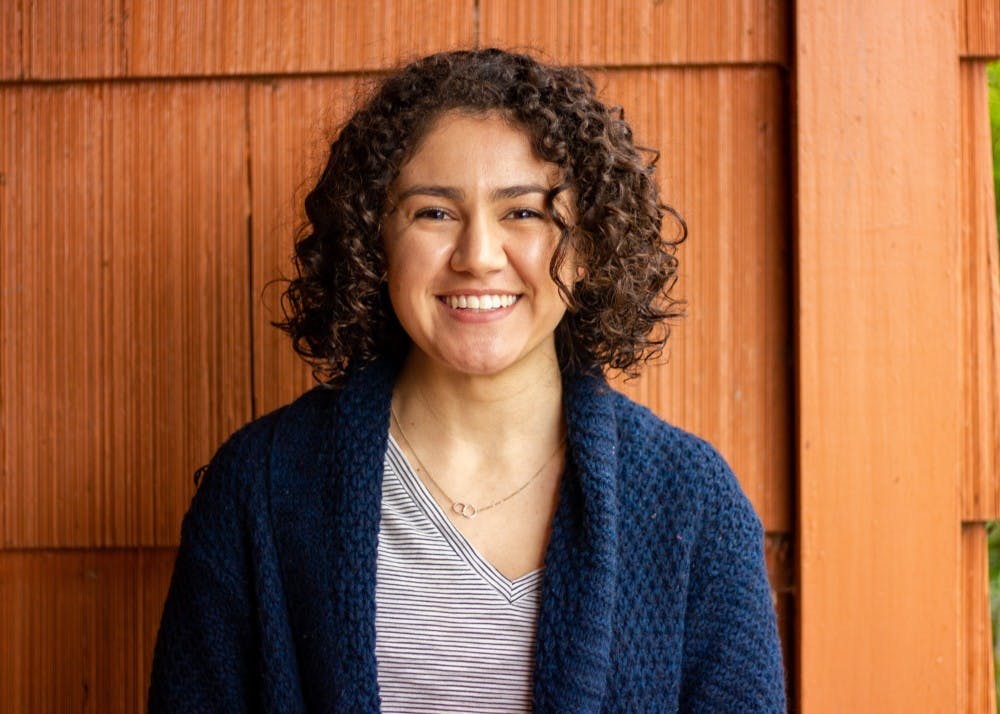
Senior biology and Spanish double major Ariana Giblin interned at Virginia Garcia Memorial Health Center for the Interns for Justice program.
Ariana - Virginia Garcia Memorial Health Center
Ariana Giblin, senior biology and Spanish double major, spent her summer working with Virginia Garcia Memorial Health Center at their clinic in Cornelius, Oregon. Virginia Garcia’s goal is to provide comprehensive health care that is accessible to low-income communities.
In the afternoons, the organization hosted a kids camp where Giblin was a counselor. Giblin worked with young kids whose parents had immigrated from Mexico. Every day, Giblin would play games and do outdoor activities with the kids, help teach a cooking class for diabetics and hear from guest speakers.
“All these kids came from such a different background and it was interesting to see them all come together and be so excited for the whole day,” Giblin said. “Working with six to nine-year-olds is really fun because it’s really eye-opening to see how much they don’t know and how much you have to teach them.”
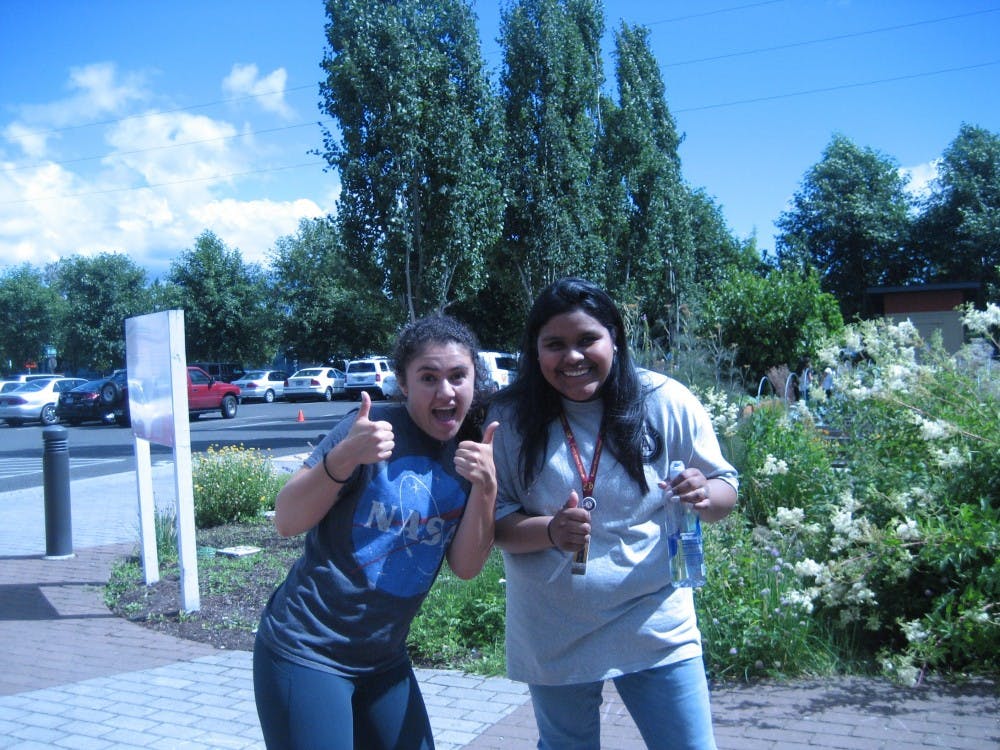
Senior biology and Spanish double major Ariana Giblin poses with another volunteer at Virginia Garcia Memorial Health Center. Photo courtesy of Giblin.
At first, Giblin struggled to find an internship willing to accommodate the 300 hours that Interns for Justice requires, as many nonprofits work with short-term interns. Although Giblin expected to work in the medical field at the clinic, working as a counselor helped shape her choices and considerations for her future career.
“I think, had I decided to go into research and go into those other internships, I probably would have been on a very different path,” Giblin said. “It taught me a lot about solidarity, working hard and keeping an open mind, that I don’t think I would have gotten out of a different experience.”
On Thursday mornings, Giblin helped the nutritionist teach a cooking class for diabetics. The first class was taught in English and the second was taught in Spanish. The ingredients were relatively cheap, and the class helped the kids who were diabetic eat healthy foods.
To Giblin, her experience working with these kids was more than just being a standard camp counselor. She was able to explore and benefit a community she cares about.
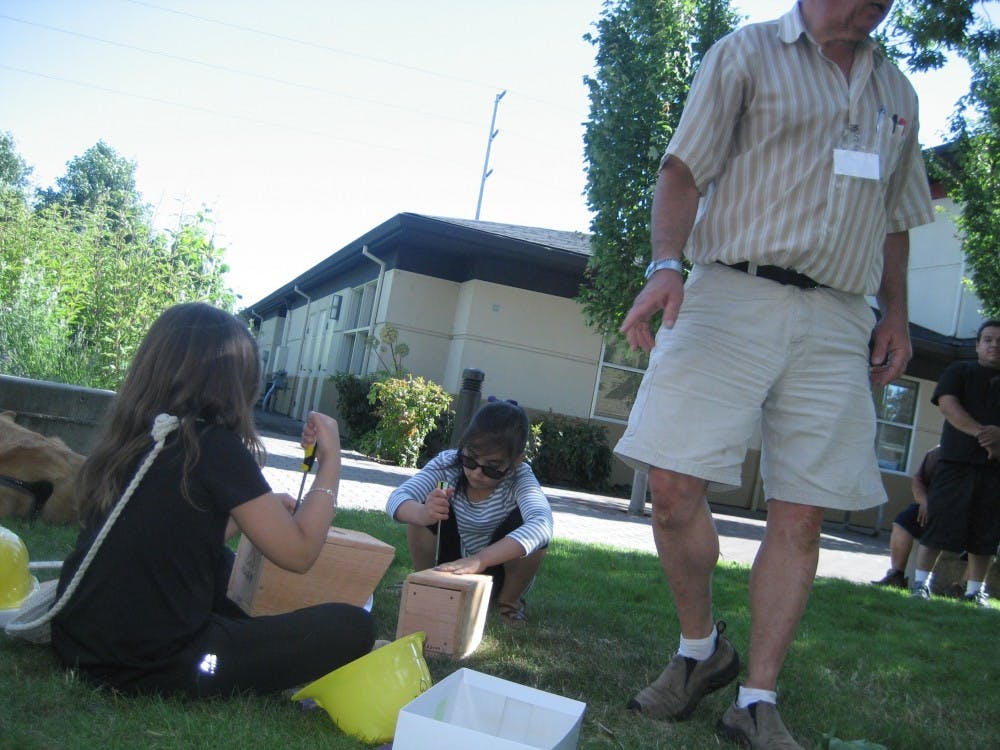
Two kids that Giblin was a counselor for built bird houses for one of their activities at the kids camp. The kids worked on their bird houses for two weeks, and the wood was donated by Home Depot. Photo courtesy of Giblin.
“I wanted to be working with the community that I am passionate about (the Latino community) and Interns for Justice was the perfect way to be able to spend my summer doing just that,” Giblin said. “They were able to give me the freedom to pick an issue that I am passionate about and explore it from the inside.”
Giblin’s experience with Interns for Justice influenced her decision to do a year of service with Jesuit Volunteer Corps after she graduates in May.
“Justice to me is equality, and making sure you recognize your privilege,” Giblin said. “Justice is solidarity. It’s being with people, instead of working for people. Justice, justice is good.”
Austin De Dios is a reporter for The Beacon. He can be reached at dedios22@up.edu.



